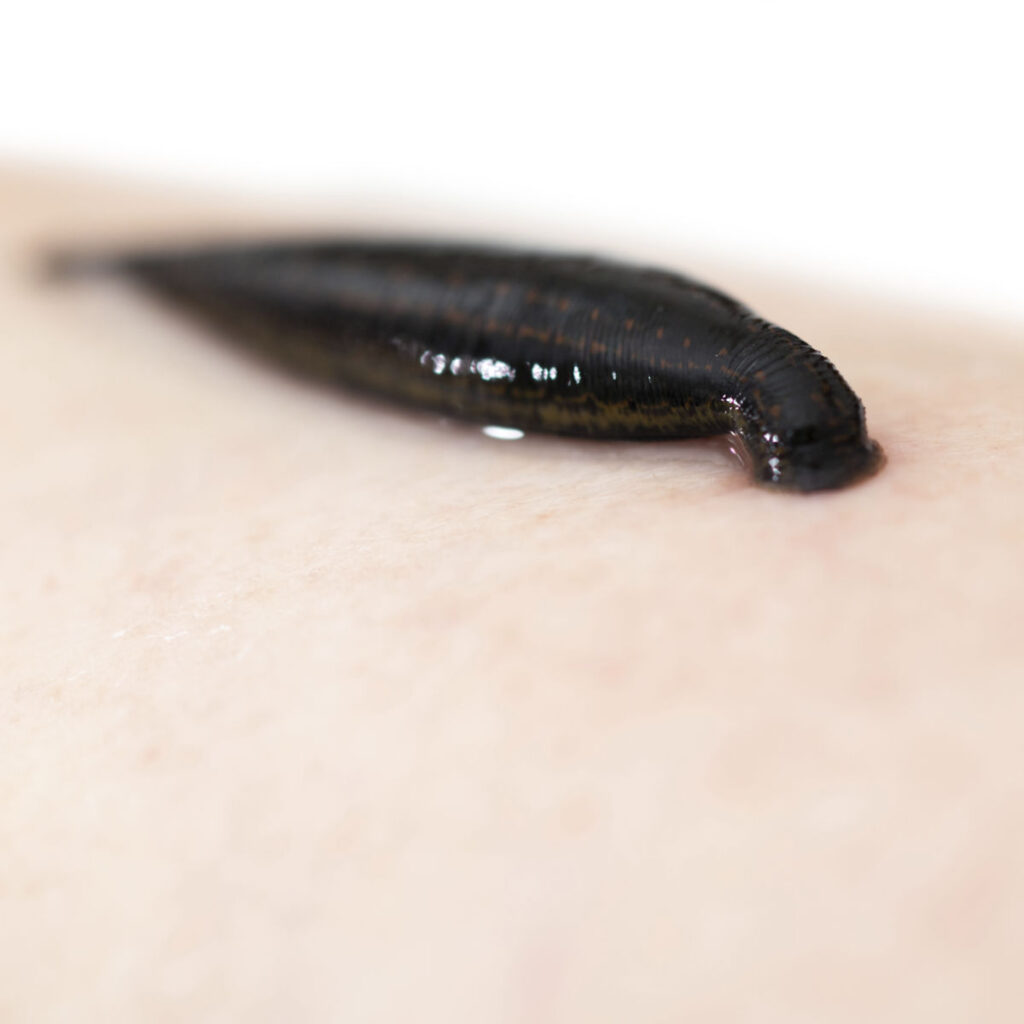Last Reviewed and Updated on June 26, 2022
When thinking about leeches most people think of blood-sucking parasites straight out of nightmares, however, did you know that not all leeches suck blood? Or that they were and still are used in medicine. There are many fascinating facts about leeches, and knowing them might make these little worms seem friendlier.

1. Most leeches live in freshwater
The majority of leeches species live in freshwater, but as far as their water habitat goes, some species live in saltwater as well.
2. Some leeches live on land
Leeches aren’t limited to water habitats, some of their species live on land too. Leeches living on the land are called terrestrial leeches. They will still need a moist environment so they are most common in the rainforests.
3. Leeches have been (and still are) used in medicine
Leeches have been used in medicine throughout human history, through ancient Egypt, India, Greece as well as Arabs. They have been used to cure many ailments, including infections, and nervous system issues, in dentistry and for curing skin diseases.
Medicinal leeches are still used today in surgery and there were studies made and research is still ongoing on the benefits of their use for many medical conditions (such as using leech therapy for osteoarthritis).
The saliva of the medicinal leech has hirudin, a component that is an anticoagulant and is used to prevent blood clotting after surgeries.
Leeches truly are the miracle of ancient (and modern) medicine and have saved a lot of lives throughout history.
4. Contrary to the popular belief, not all leeches suck on blood
Leeches are most known (and feared) for their bloodsucking, but not all species of leeches suck on blood. Many leech species actually don’t suck on blood but are predatory carnivores feasting upon larvae, small invertebrates, and carrion. Some are even herbivores, eating only plants or decaying plants.
5. Leeches are sequential hermaphrodites
This means leeches have both female and male reproductive organs. The male reproductive organs, the testes, mature first and the ovaries will follow. When mating, the two leeches will each face in one direction, aligning their reproductive organs (male to female). Both leeches are impregnated during mating. Now if this isn’t one of the most fascinating facts about leeches, we don’t know what is. Or do we?
6. Not all leches have penises
Some of the jawless and proboscisless leeches don’t have a penis, with these species the sperm is passed from one leech to the other via hypodermic injection. The hypodermic injection is a little bit crazy, as it requires the leech to pierce the abdomen of another leech and inject sperm into the abdominal cavity. Fascinating!
7. Bloodsucking leeches secrete an anticoagulant and an anesthetic
The anesthetic numbs their “prey”, making the bite painless, and the anticoagulant prevents their host from clogging blood which makes it easier for the leeches to feed.
8. Some leeches don’t let go of their hosts until it’s time to reproduce
Most species will only be attached to their hosts for a short amount of time, just until they are finished feeding and then they will drop off.
Some marine species have a different process though, they will attach to their host and not let go until it is time for them to reproduce. Clingy little crittures.
9. A group of leeches is called a cuck
We hope you never stumble on a cuck of leeches unless you really want to.
10. They can be found across the globe
They are found almost everywhere in the world, except Antarctica.
11. A leech bite is generally not dangerous, but many bites can be
Now, this is one of the facts about leeches worth remembering. A single leech bite will do you no harm unless you have an allergic reaction to the bite. Dozens or even hundreds of leech bites simultaneously can be dangerous and even could be deadly (although extremely unlikely). It is theoretically possible as leeches can live in huge swarms, so if you happen to somehow get hundreds of leeches on you, not notice them and get rid of them or seek medical attention, they could, theoretically, suck you dry.
Getting anemic from multiple leech bites is absolutely possible. A single leech will drink from 5-10mL of blood, an average human has 5 liters, so a 100 leech can cause serious anemia. Taking into account the effects of the anticoagulant, once the leech is removed the wound will still bleed for quite some time (10 hours on average), you don’t need 100 of them bitting you to get slightly anemic.
